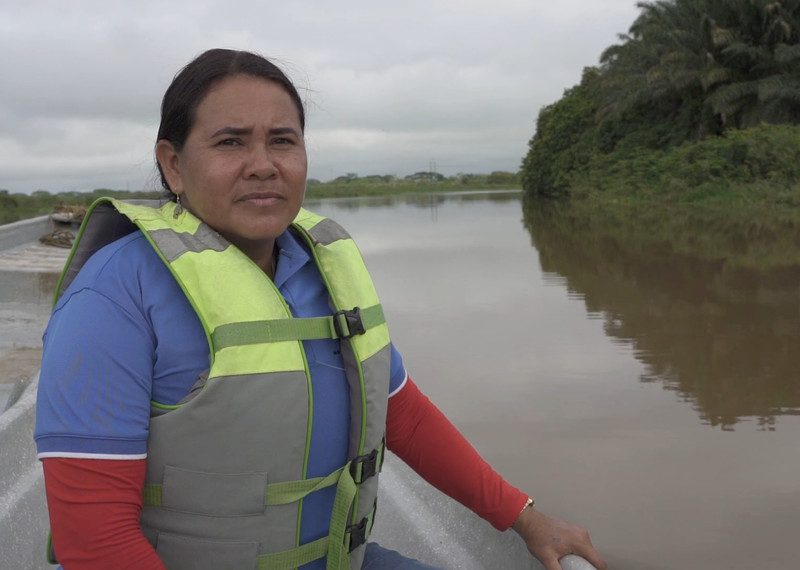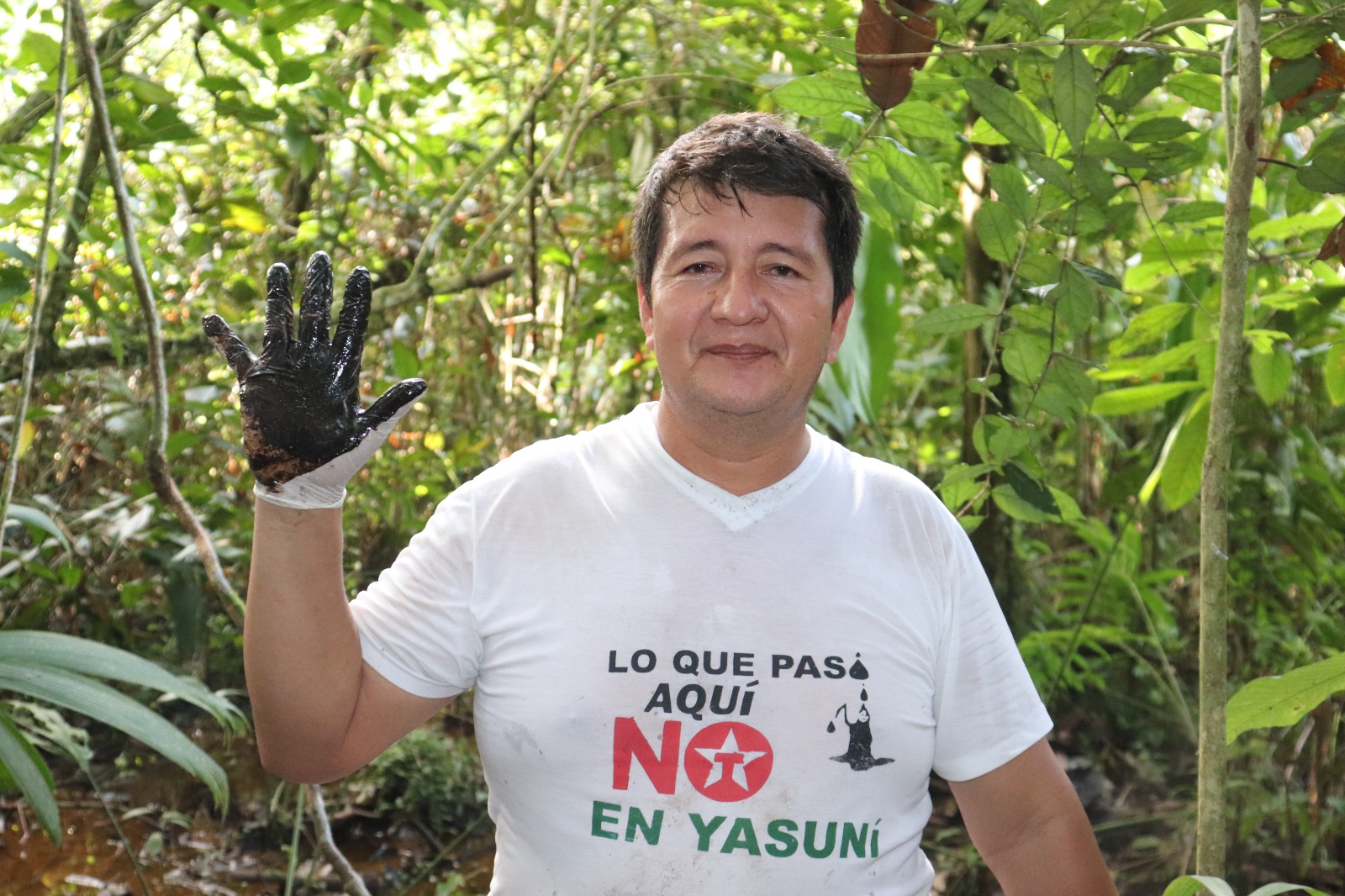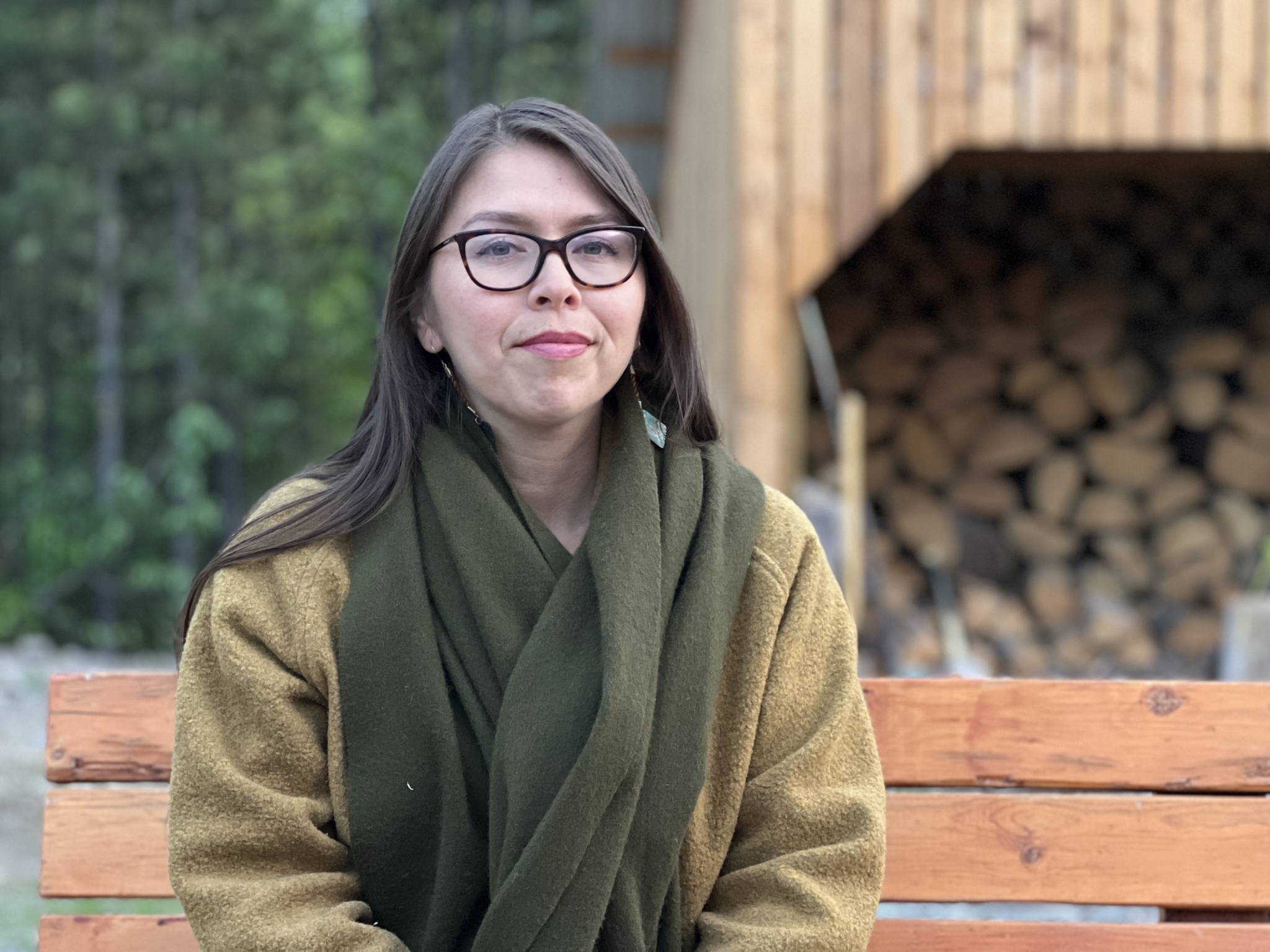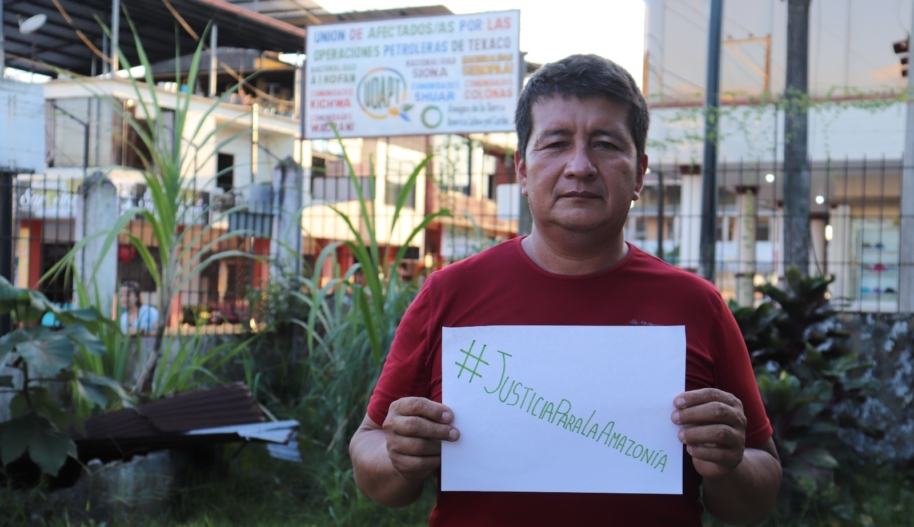By Graciela Martinez, Americas Regional Campaigner, Amnesty International
This piece was originally published in Spanish in Open Democracy
The Americas is the world’s deadliest region for those defending land, territory and the environment. As companies and authorities continue to destroy and pollute the places Indigenous People call home, communities are riddled with health issues, while livelihoods are destroyed and environmentalists are criminalised for speaking out.
Ahead of COP28, three environmental defenders from across the region reveal why, despite the terrifying challenges they face, they’re fighting for a healthy environment for all.“Defending our waterways fills me with pride”
Colombia is the deadliest country in the world in which to defend land, territory and the environment. Yuly Velásquez, President of the Federation of Artisanal, Environmental and Tourist Fishermen of the Department of Santander (FEDEPESAN) – an organization focused on protecting wetlands and rivers in Barrancabermeja, Colombia – has experienced violence first-hand.

Last year, Yuly was the victim of an armed attack. She was shot at by unidentified men while she was assessing damage to her local environment. Other members of FEDEPESAN have experienced violence too. Here, Yuly shares the dangers of being a female environmental defender.
“Everyone in Colombia deserves the right to clean water. Yet, our rivers and waterways are heavily polluted because of oil and gas. People are suffering from gastrointestinal diseases, and often have constant diarrhoea and rashes – no one knows where these diseases are coming from, but it’s because we are drinking polluted water.
“It’s having a huge impact on our livelihoods too. Where I live, we need pristine water to catch and sell good fish. But because of the pollution, our catch is declining, affecting us economically. It’s not the same now as it was 10 years ago: the catches are paltry. Nowadays we don’t find crowns, we don’t find crabs, we don’t find sea breams or catfish.
“It’s a huge worry for us. It’s so sad that in Colombia—a country both rich and poor—many families go to bed without any food. It’s troubling to see so many dead fish all year round. That’s why I want to ensure those responsible for pollution are held accountable. But, it’s not easy.
“As a female activist defending our waterways, I don’t have the security to freely carry out our fishing activities and protect our environment. It’s a dangerous place to be. I’ve been shot at in the past and my bodyguard was wounded. Yet, despite the threats and attacks, more women have joined our cause and we’ve learnt to stand with one another – many have even got their children involved. It really motivates me and fills me with pride to see so many people join our cause. Recently, another organization told me: ‘We are here to support you, you are not alone.’ Messages like that are a bright spot amongst adversity and shows that our message is taking hold.
“While authorities still see the environment as a separate issue, we’re calling for companies that use fuel and oil not to dump them directly into the river, waterways or wetland. Instead, they must find a proper place to dispose of them so they do not show up downstream. Some people still drink water directly from the rivers with no basic treatment whatsoever.
“Our dream is for communities across Colombia to be able to consume clean water – and it’s essential it reaches to all our settlements and communities, both urban and rural. I really want our older generation to feel proud of our work – they were aware of the risks of defending our land, yet they did it anyway. I am determined to do the same.”
“Our children deserve a better quality of life”
In 2021, nine schoolgirls sued the Ecuadorean government, saying the use of flares by oil companies in the Amazon violated their constitutional rights to a healthy environment and to health. They won their case, but more than a year later, they are still fighting to protect their community. Donald Moncayo, Executive Coordinator of the Union of People Affected by Texaco (UDAPT) and whose daughter led the complaint, reveals why.

“From the moment oil was found and extracted in the Ecuadorian Amazon, gas flares were installed in various places, to separate oil, water and gas, causing huge environmental damage.
“Although the courts were aware of the environmental damage, they did not know the harm the flares were causing to people’s health. Thanks to my daughter and her friends, in 2021, a court finally recognised the damage it causes to the residents and families who live near to the flares. Alongside the court case, we conducted research, revealing how the flares were releasing carbon dioxide and monoxide into our air, as well as polluting our water. Our research further revealed that 90 per cent of the cancer cases registered are close to the oil infrastructure – and the number of cases will only keep growing until they remove the flares – directly contradicting information gathered by the Ministry of Environment.
“While the Provincial Court ordered companies to remove the gas flares closest to the population, the others won’t be removed until 2030, meaning the smog from the pollution will continue to travel for kilometres, damaging our health and environment.
“I am determined to raise awareness of this issue and the environmental liabilities oil companies have left – it’s a risk I am taking, but it’s worth it. There is a way to mitigate this and operate in a cleaner, friendlier way – for the environment and the health of the people who live here. But that costs money.
“I am calling for the gas lighters to be removed as quickly as possible, so our children can have a better quality of life. Growing up, I had to walk on a road covered in oil, bathe in the rivers full of oil, drink contaminated water and breathe air rife with the smell of burning gas. We are not victims – we are fighters and we all deserve the right to a healthy environment now – not in seven years!”
Putting people’s lives and land at risk
Wet’suwet’en land defenders face continued surveillance and criminalization by the British Columbia (B.C.) provincial government and Royal Canadian Mounted Police (RCMP). At the source of the struggle is the construction of the Coastal GasLink (CGL) pipeline, which cuts the Wet’suwet’en territory into two. The pipeline has been opposed by all five Wet’suwet’en clans and their Chiefs have not consented to its construction according to their laws and customs.
Determined to build the pipeline without delay, the pipeline company, and the B.C. provincial government and the RCMP have opted for violent responses, reminiscent of past colonial repression and trauma – putting peoples, lives and land at risk.
Dr. Karla Tait is a clinical psychologist and Director of Programming for the Unist’ot’en Healing Centre. She shared the following testimony.

“I’m a mother, I have a nine-year-old daughter. She follows my clan, she is Unist’ot’en, and her children will be Unist’ot’en. I think that matrilineal way is imbued with so much wisdom, because mothers carry and nurture their children from conception, and bring them into this world. Who best to watch out for their interests, their longevity, and their good life, and the territory that will support them, than mothers?
“It’s critical that my daughter grows up knowing how to survive on her territory. Knowing how to live off the land, knowing what healthy land looks like, what healthy waterways look like. Walking where her ancestors walked. Only by living on and knowing the land can she recognize when more advocacy and protections are needed.
“It is essential to preserve the integrity of our land to provide for our future generations.
There’s so much empowerment that comes with knowing your food from its source, knowing how to prepare it and provide food for your family outside the larger Western capitalist system.
“Our resistance to this project is our existence here. We have every right to be here and uphold our law and not provide our consent. I don’t think we can allow anyone to run us off our territory and erase who we are. In our day-to-day practices we have a spiritual connection to the land. Our survival as a people depends on that connection.
“I need to be here for the land to take back all this heavy colonial oppression that we live with. It’s a reciprocal thing: we’re fighting for the land, but the land is holding us up for that. And it’s doing that the same way it did for all the generations before me.”
For more information
Read Amnesty International’s new report, No Future Without Courage: Human rights defenders in the Americas speak out on the climate crisis.













